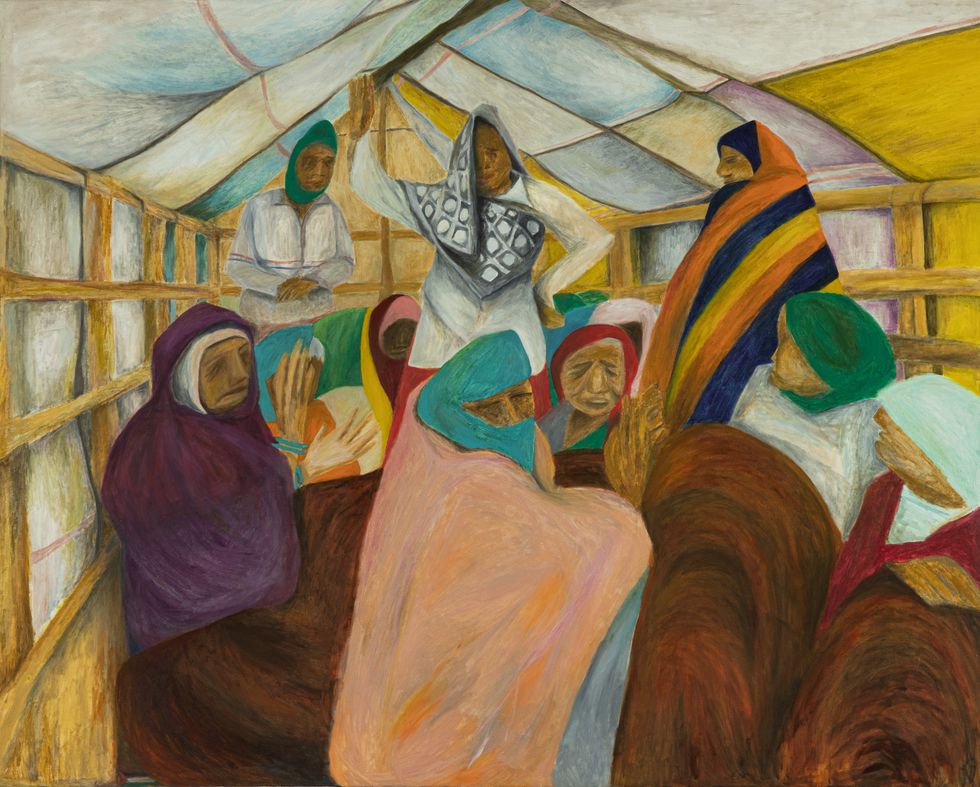Professor Kiran CR Patel
Chief medical officer andCardiologist, University
Hospitals of Coventry and Warwickshire
EMERGING evidence from the NHS in the UK and from the US suggest a disproportionate impact of Covid-19 on patients and staff from black, Asian and minority ethnic (BAME) communities.
A recent study from King’s College, London, showed that BAME patients admitted to hospital with Covid-19 were, on average, a decade younger than their white European counterparts. BAME communities have been over-represented in deaths among healthcare professionals too. So significant is the concern that Public Health England has commissioned a rapid review into the inequity which is due to be published at the end of this month.
However, it is important to ensure that any advice or guidance is from respected sources, since one of the challenges of the pandemic has been knowing what advice to trust. There are several trusted sources of guidance, such as the government, scientific literature and the voluntary sector. Eastern Eye hosted a roundtable discussion of experts only last week and the South Asian Health Foundation (www.sahf.org.uk) has summarised a range of validated and useful resources for communities.
Although human beings are more similar than we are different, for some reason(s), BAME groups appear to have a more severe outcome that white Europeans from Covid-19 infection. While the inequality for BAME groups awaits further explanation, some issues necessitate immediate action.
First, there are behavioural factors. Let us understand how BAME populations might be more prone to contracting the Covid-19 infection. It spreads by direct contact or by a person being close to someone who is infected and breathing out the virus. It is well recognised that people from BAME groups, particularly those in deprived communities, tend to live with extended families and congregate for cultural and religious reasons.
There is therefore a greater risk of direct transmission in larger families or if people come into close contact with potentially infected individuals. The importance of social isolation for high-risk individuals – the elderly or those who have illnesses, putting them at increased risk, who have received letters from their doctors to shield from the external world – social distancing and higher standards of hygiene are concepts which may be difficult to achieve. Tailored messaging targeting vulnerable groups is essential.
Second, there are risk factors which make it more likely that once infected with the virus, outcomes may be worse. We know that patients with conditions such as diabetes, high blood pressure and obesity have a more severe disease course and are more likely to die from Covid-19 than patients without such conditions. Such conditions are more prevalent in BAME communities and quite often, are not as well controlled or managed.
It is therefore relevant not only for the present risk of Covid-19 but also for future health, that we encourage BAME patients to control their risk factors. Prevention strategies such as encouraging a healthy diet, undertaking physical activity and avoiding tobacco use are also key factors in reducing the risk of adverse outcome from Covid-19. For patients with conditions such as diabetes and blood pressure, good control is essential – they must ensure they take medication and have medical reviews if they are concerned. To tackle obesity, there has never a better time than now to start to eat sensibly and exercise more.
An important message to get across is that the NHS is open for business as usual, so patients must not sit on health concerns due to a fear of seeing their GP or going to hospital. One unfortunate consequence of the pandemic is that patients with significant illness have stayed away from hospitals or presented with a late stage of illness. We must ensure everyone receives the healthcare they need.
Third, we know that a high proportion of frontline NHS staff, bus drivers and other key workers are from a BAME background. Employers must ensure the risk of contracting Covid-19 is reduced for all staff and in particular, ensure BAME staff are supported to reduce the risk of infection. In the NHS and care sector, this means ensuring good access to appropriate PPE (personal protective equipment) and a safe working environment.
In other forms of employment, similar measures to reduce the risk of exposure has been given to employers. This must apply to all businesses, including the Asian retail sector, where it is evident that social distancing unfortunately remains a challenge to implement. We must ensure a zero tolerance approach to ensure optimal protection for both staff and the public.
Finally, we must ensure an eagle eye is kept on emerging scientific hypotheses to avoid unintended morbidity and mortality in BAME groups. It is critically important to ensure that BAME populations are represented in clinical trials so we can be sure that all groups in society benefit from emerging vaccines and treatments.
As the world surfaces from the pandemic, things will get better. One hope is that for BAME groups, both self care and healthcare are better than in the past, so we can all enjoy a better life.
Professor Kiran CR Patel is also chair of trustees, South Asian Health Foundation.





 Priya Malik
Priya Malik Kaavish
Kaavish Kesari: Chapter 2
Kesari: Chapter 2 Laapataa Ladies
Laapataa Ladies Rizwan Muazzam
Rizwan Muazzam Manasi Ghosh
Manasi Ghosh Kavya Limaye
Kavya Limaye L2: Empuraan
L2: Empuraan Rahat Fateh Ali Khan
Rahat Fateh Ali Khan









 The Calcutta Club
The Calcutta Club The Bengal Club lawns
The Bengal Club lawns


 His portrait in the City Palace
His portrait in the City Palace
 Pakistani artist Moazzam Ali Khan caught the attention of Bollywood legend Javed Akhtar with his soulful YouTube cover of Yeh Nain Deray Deray
Pakistani artist Moazzam Ali Khan caught the attention of Bollywood legend Javed Akhtar with his soulful YouTube cover of Yeh Nain Deray Deray John Abraham to headline action thriller Tehran
Getty Images for DIFF
John Abraham to headline action thriller Tehran
Getty Images for DIFF
 Tikri Border, Haryana-Delhi by Aban Raza
Tikri Border, Haryana-Delhi by Aban Raza Harmz Matharu
Harmz Matharu Abhishek Bachchan in Be Happy
Abhishek Bachchan in Be Happy Devika's soulful vocals shine in her new Punjabi ballad Wisteria
Devika's soulful vocals shine in her new Punjabi ballad Wisteria Indian Idol star Nitin Kumar promises a soulful mix of qawwali, Sufi, and folk music at his upcoming UK performance
Indian Idol star Nitin Kumar promises a soulful mix of qawwali, Sufi, and folk music at his upcoming UK performance Kunal Kamra during his show
Wikipedia
Kunal Kamra during his show
Wikipedia
 Swiss-Indian singer BombayMami is making waves with her bold style and sound
Swiss-Indian singer BombayMami is making waves with her bold style and sound Hania Aamir receives a questionable honour in London
Hania Aamir receives a questionable honour in London